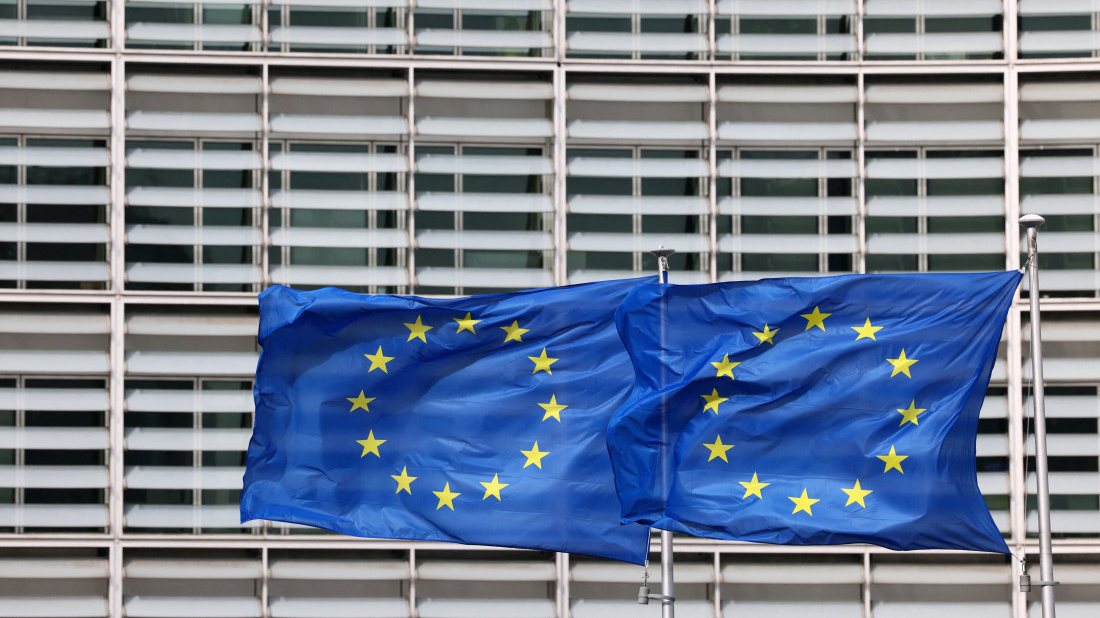Balcazar elected as Peru’s interim president
Peruvian lawmakers elected Jose Balcazar as the country's new interim president on Wednesday ahead of general elections in April....

The Council of the European Union approved key conclusions that will guide its negotiations at the summit
The European Union is gearing up for the 29th United Nations Climate Change Conference (COP29) with a strong commitment to combat climate change. The Council of the European Union has approved key conclusions that will guide its negotiations at the summit, which will take place in Baku, Azerbaijan, from November 11 to 22, 2024.
The EU aims to secure an ambitious and balanced outcome at COP29, centered on limiting global warming to 1.5°C, boosting resilience, and agreeing on a new collective quantified goal (NCQG) for climate finance. These goals will be driven by the latest scientific evidence and a consensus among EU member states.
"Ambitious yet Balanced"
Hungarian Minister of State for Environmental Affairs and the Circular Economy, Anikó Raisz, emphasized the EU's leadership role in global climate efforts. "This ambitious yet balanced text, grounded in consensus among EU countries, will serve as the EU’s roadmap to Baku," she said. The EU is calling for global solidarity, especially with vulnerable countries and communities that bear the brunt of climate change.
Climate Finance and Global Cooperation
A central focus for the EU is reaching agreement on a new climate finance goal. The Council highlighted the need for a broad, transformative approach that includes both public and private investment, acknowledging that public funds alone will not be enough to meet the financial demands of the green transition. The new goal will reflect evolving economic realities and rising global emissions since the 1990s.
Strengthening National Climate Commitments
The EU is also pushing for greater ambition in the next round of nationally determined contributions (NDCs), which are set to be submitted by 2025. The Council has called on all nations, particularly major economies, to submit more aggressive climate action plans that include economy-wide reduction targets covering all greenhouse gases.
Mitigation, Adaptation, and a Just Transition
The Council’s conclusions stressed the need to scale up both mitigation and adaptation efforts in this critical decade. It called for the integration of climate resilience into existing policies and urged a transition away from fossil fuels in a just and equitable manner, in line with the goal of achieving net-zero emissions by 2050.
Looking back on the outcomes of last year's COP28, the EU underscored the importance of building on the global stocktake and continuing to track progress through dialogues like the UAE’s, to ensure that collective efforts align with the Paris Agreement.
The drumbeats have finally faded at the Marquês de Sapucaí, bringing the competitive phase of the Rio Carnival 2026 to a dazzling close. Over two marathon nights of spectacle, the twelve elite schools of the "Special Group" transformed the Sambadrome into a riot of colour.
Peru’s Congress has voted to censure and remove José Enrique Jeri Ore from his posts as President of Congress and acting President of the Republic, just four months into his tenure, citing undisclosed meetings with Chinese businessmen and alleged hiring irregularities.
France celebrated Olympic gold in the men’s biathlon relay in Anterselva on Tuesday (17 February), following a thrilling race marked by an electric atmosphere at the stadium.
Qarabağ FK are facing Newcastle United in the UEFA Champions League play-off round on Wednesday evening in Baku, in what will be the first UEFA competition meeting between the two clubs.
Iranian officials say more than 300 undocumented Afghan migrants have been rescued after being stranded in cold and rain near the border district of Taybad, in the northeastern Razavi Khorasan province.
The administration of U.S. President Donald Trump on Thursday (12 February) announced the repeal of a scientific finding that greenhouse gas emissions endanger human health, and eliminated federal tailpipe emissions standards for cars and trucks.
Tropical Cyclone Gezani has killed at least 31 people and left four others missing after tearing through eastern Madagascar, the government said on Wednesday, with the island nation’s second-largest city bearing the brunt of the destruction.
Rivers and reservoirs across Spain and Portugal were on the verge of overflowing on Wednesday as a new weather front pounded the Iberian peninsula, compounding damage from last week's Storm Kristin.
Morocco has evacuated more than 100,000 people from four provinces after heavy rainfall triggered flash floods across several northern regions, the Interior Ministry said on Wednesday.
Greenland registered its warmest January on record, sharpening concerns over how fast-rising Arctic temperatures are reshaping core parts of the island’s economy.
You can download the AnewZ application from Play Store and the App Store.

What is your opinion on this topic?
Leave the first comment